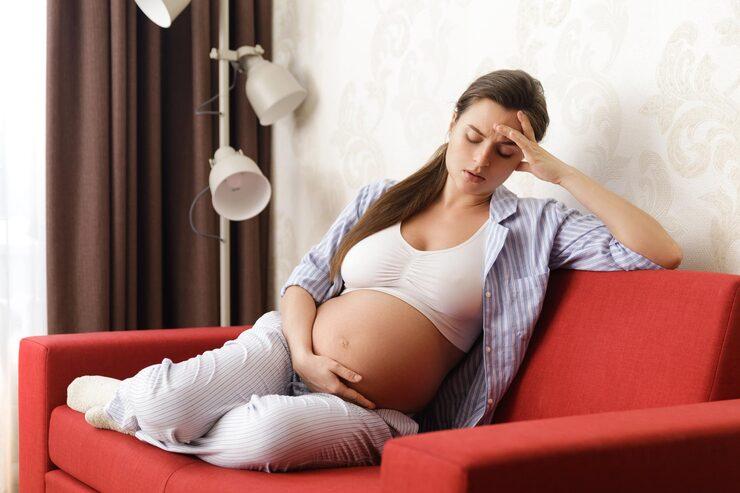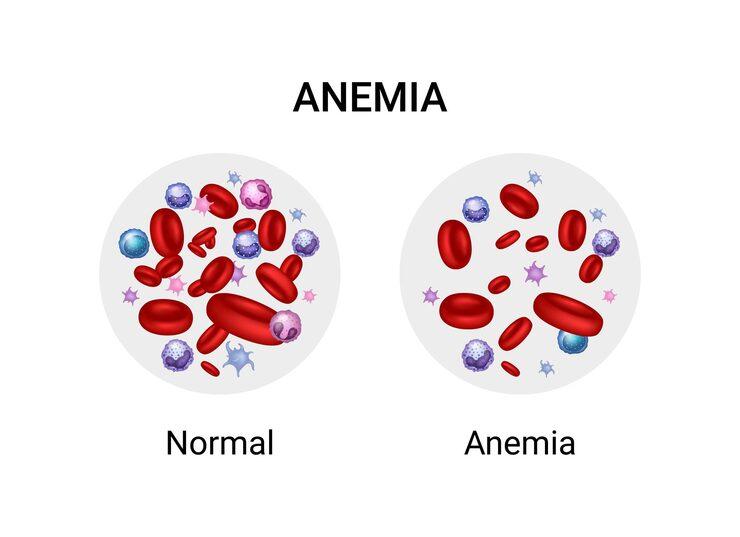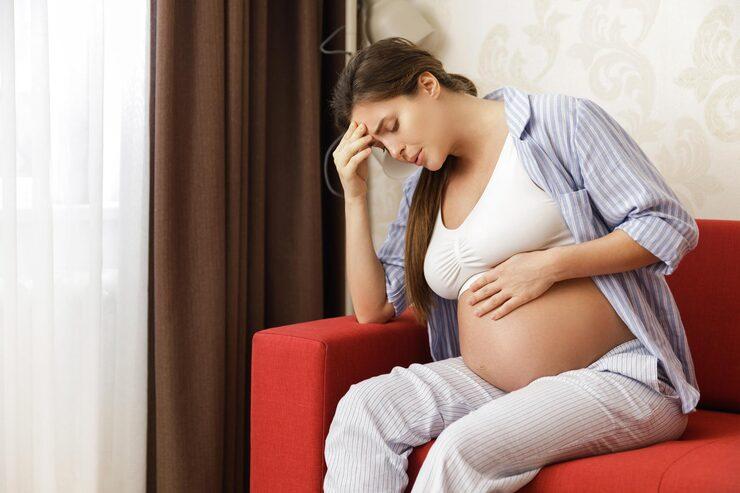
A pregnant woman displaying signs of anemia
Pregnancy is a wonderful time, but it can also be demanding on a woman's body. Pregnancy can cause a lot of health problems, and one of them is anemia. It happens when there aren't enough healthy red blood cells in the body to transport oxygen to organs and tissues. If this isn't fixed, it could pose problems for both the mother and the baby.
Anemia during pregnancy is very bad since the body needs more iron, minerals, and blood to support the growing baby and placenta. You may help make sure that both the woman and the baby have a safe pregnancy if you know the indicators, the dangers, and how to avoid and deal with them.
When the amount of hemoglobin, the protein in red blood cells that delivers oxygen, drops below normal, you have anemia. A woman's blood volume might go up by roughly 50% while she is pregnant. This can make her red blood cells thinner, which makes her more likely to get anemia.
Iron-deficiency anemia is the most prevalent kind of anemia that happens during pregnancy. Not obtaining enough folic acid or vitamin B12 can also cause it, while other medical conditions are less likely to do so.
There are many reasons why pregnant women can become anemic.
The woman requires more iron since the placenta and the baby need a lot of it.
Not eating enough iron-rich foods can cause inadequacies.
Having heavy periods before getting pregnant or bleeding throughout pregnancy makes the risk higher.
You require folic acid to create red blood cells. If you don't receive enough of it, you could acquire megaloblastic anemia.
Giving your baby inadequate levels of vitamin B12 can also make you anemic and raise the chance of having a baby with birth problems.
You require more iron and nourishment when you're pregnant with twins or triplets, which makes you more prone to acquire anemia.
Not giving the body enough time to heal between pregnancies might deplete nutrients.

A pregnant woman displaying signs of anemia
There may not be any clear indicators of moderate anemia, but as it gets worse, these are some common ones:
Some of these signs are similar to natural changes that happen during pregnancy, so it's important to obtain blood tests often to find anemia early.
Anemia can be dangerous for both the mother and the child.
Anemia during pregnancy can lead to potentially significant issues if not treated:
For the Mom:
For the baby:
If you take care of yourself and eat appropriately, you might not have anemia when you're pregnant. Here are some good ways to do things:
1. A diet high in iron
Lean red meat, chicken, fish, beans, lentils, spinach, and fortified cereals are all good sources of iron.
It is easier for the body to absorb heme iron from animals than non-heme iron from plants.
2. Getting Enough Vitamin C
Vitamin C helps the body absorb iron. Strawberries, tomatoes, bell peppers, and citrus fruits are all good to eat with meals that are high in iron.
You can add lemon juice to spinach meals or eat an orange with your breakfast in the morning.
3. Women who are pregnant should take vitamins.
Your doctor has told you to take prenatal vitamins that have iron, folic acid, and vitamin B12 in them. These help the body acquire the extra nutrients it needs while pregnant.
4. Don't take iron blocks
When you eat foods high in iron, you should cut back on tea, coffee, and meals high in calcium since they make it difficult for your body to absorb the iron.
5. Regular checkups
Blood tests done during prenatal checkups can help find anemia early and figure out how to treat it.
6. The time between having babies
Before you get pregnant again, make sure your body has enough time to store up nutrients.

The best way to treat your anemia depends on how bad it is and what caused it:
1. Changes to Your Diet
Every day, eat foods that are high in iron, folate, and vitamin B12.
Dieticians can help pregnant women prepare healthy meals.
2. Supplements of iron
The most common way to treat this is with iron pills or syrups that you take by mouth. People often take them alongside vitamin C to make it easier for the body to absorb them.
If you have side effects like nausea or constipation, you can adjust the dose or the method the medicine is prepared.
3. Supplements of folic acid and vitamin B12
When people don't have enough of something, doctors give them different supplements to help them go back to normal.
4. Iron therapy with an IV
People with severe anemia or who can't take iron supplements by mouth can get iron through an IV.
5. Giving blood transfusions
Only in very serious instances, including when hemoglobin levels are dangerously low or when delivery is about to happen.
6. Checking in and following up
Regular follow-up tests help stop problems from happening and make sure that treatment is working.
Anemia during pregnancy is a frequent but avoidable problem that demands a lot of care. If you have mild anemia, changing your diet and taking vitamins can usually help. But if you have severe anemia, it could be dangerous for both you and the baby. Pregnant women can keep their hemoglobin levels healthy by knowing what causes, symptoms, and risk factors are.
Anemia can be controlled well with the right diet, regular checks, and the right medicine. Make sure to get more insight by contacting experienced doctors like the ones at Prakash Hospital, Noida. This is healthy for both the mother and the baby's health.
One of the finest things you can do for your baby's health is to make sure you get enough iron and other minerals while you're pregnant.
We offer expert care across key specialties, including Medicine, Cardiology, Orthopaedics, ENT, Gynaecology, and more—delivering trusted treatment under one roof.
Prakash Hospital Pvt. Ltd. is a 100 bedded NABH NABL accredited multispecialty hospital along with a center of trauma and orthopedics. We are in the service of society since 2001.
OUR SPECIALITIES
Contact Us
D – 12A, 12B, Sector-33, G. B. Nagar, Noida, Uttar Pradesh 201301
+91-8826000033

© 2026 All rights reserved.
Designed and Developed by Zarle Infotech